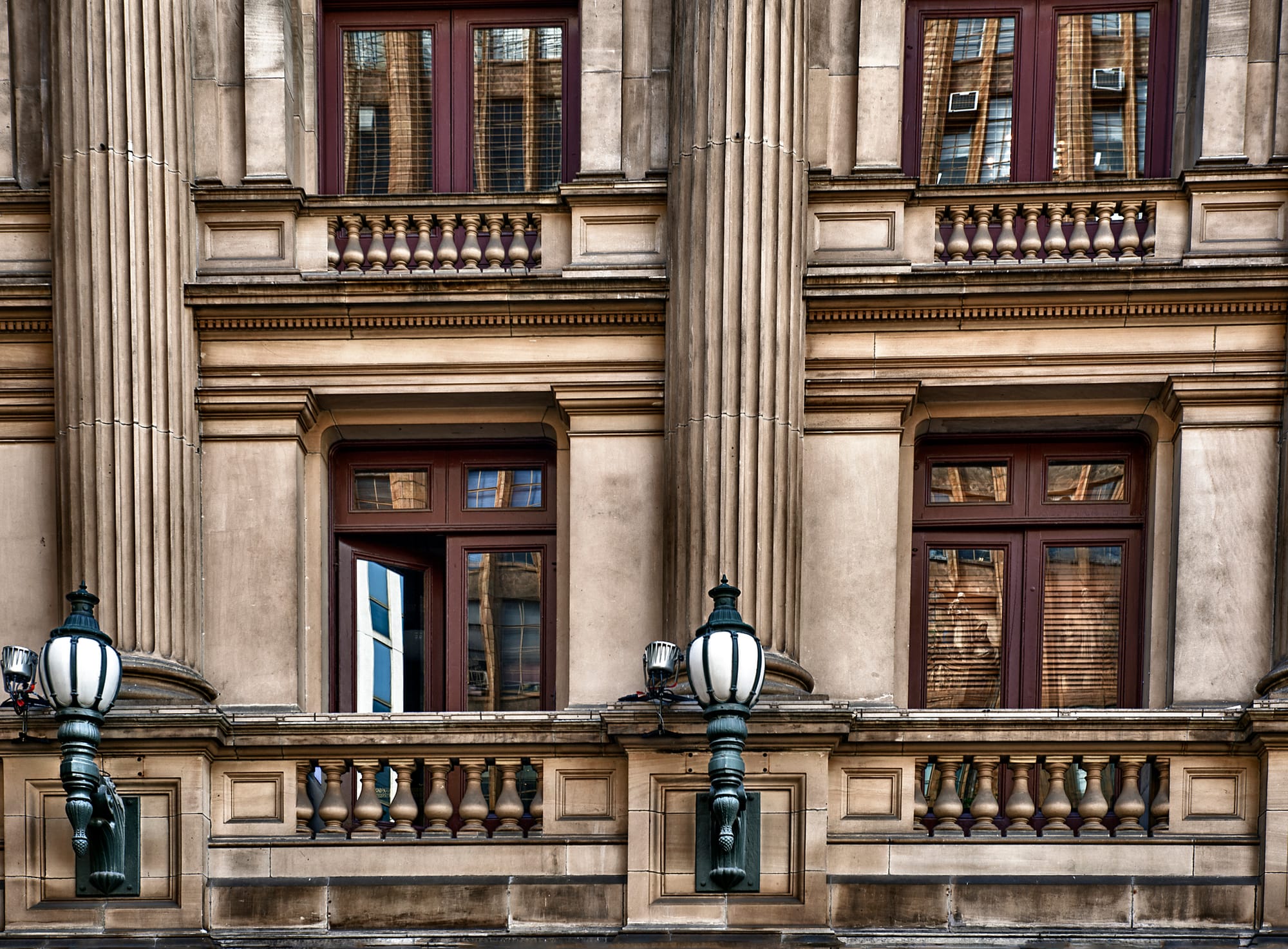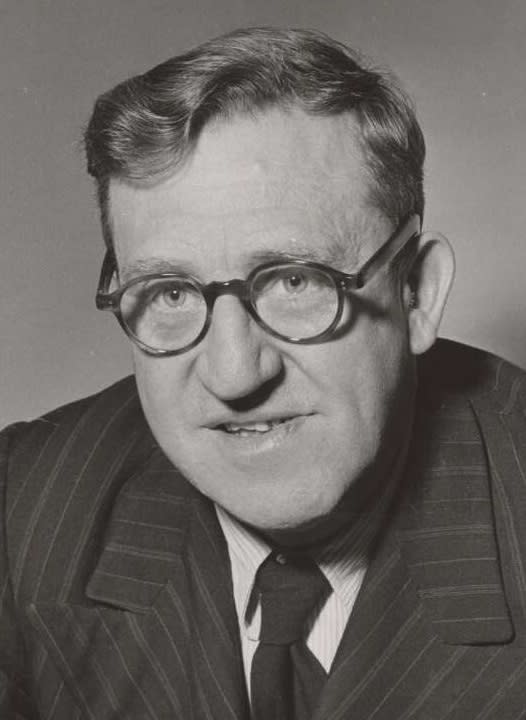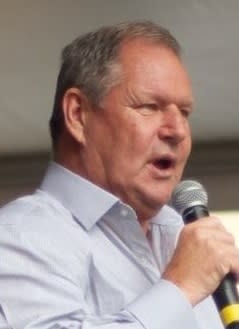
The late Labor leader Arthur Calwell called it “the most undemocratic municipality in Australia”. This was damning more than 50 years ago when the Melbourne City Council was seen as an important institution of government, albeit local, by state and federal politicians of Calwell’s stamp.
Calwell knew better than most. He cut his political teeth in the rough-and-tumble of Melbourne’s inner-city politics and was one of the city’s last Aldermen in 1939, before one of the MCC’s many franchise-altering political interventions at the behest of the state government on the eve of World War II.
Melbourne’s defective city democracy is on show again with an election for lord mayor following the forced resignation of former state Liberal leader Robert Doyle, who – notwithstanding his alleged sexual peccadilloes – many regard as one of Melbourne’s best lord mayors after a record eight years in the chair.
After years of nondescript, inarticulate, incompetent or just plainly dull lord mayors elected and nominated by the state government, Doyle seemed to understand and relish the symbolic and public nature of the role. He represented his conservative backers where it mattered, but also proved flexible on social and planning issues, throwing more than a few beans to his inner-urban latte-sipping bailiwicks, entertaining them and realising some of the wider potential of his role.

It seemed that Doyle, even more than the gerrymandered franchise, had made the city safe for those interests that the interventions in MCC affairs the Kennett Coalition government in the ’90s and, to a lesser extent, the Bracks Labor government in the noughties, had placed uppermost. Who would those people be?
They would tend to be politically conservative and mindful of the cost of the local authority to property owners, equally the perceived rights of property and, more particularly, of opportunities to engage in speculation and development. They are the people most favoured under the council’s franchise. That’s the way it’s mostly been since the Melbourne Corporation was created in 1842, and they explain the sort of city we have now.
It’s perhaps pertinent to ask why the electoral system is so different from Melbourne’s 30 other municipalities? In order to understand it’s not a more democratic or even more powerful institution than it is, we need to follow a little of the MCC’s long history.
Melbourne gained a council in 1842, along with Sydney and Geelong, from the NSW Legislature, of which the Port Phillip was then part. The town and later the city council became a focus for politics and pushed for Victoria’s separation from NSW, which was achieved in 1851.
With the influx of gold-seeking immigrants and the full creation of the Victorian Parliament in 1856, the focus shifted. The MCC was incapable of providing the services needed by the rapidly expanding settlement. Even though its model was advanced, based on the modernising greater cities of industrial Britain, it lacked the financial resources.
In a move welcomed at the time, outlying municipalities were allowed to form anew or to break away, creating the disjointed system of local government metropolitan Melbourne has today. The division of government between public and private and local and central authorities proved chaotic. Metropolitan problems in health, sewerage and water supply, public transport, gas and energy and port facilities could only be tackled piecemeal or in a fragmented or makeshift way, often with the colonial and later the state government disinclined to do anything.
A partial remedy was the creation of the Melbourne and Metropolitan Board of Works in 1891, which was a coming together of the municipalities to take over the water supply and to sewer Melbourne.
The MCC remained important as the largest, most central and richest of all the metropolitan municipalities, occupying the prized central area and wealthy inner suburbs. It might have been the government of greater Melbourne but for the carving off of wards and the creation of “minor municipalities” in the 1950s.
In the 1990s, the era in which Victoria led the way of reform for Australian city government, the MCC wasn’t extended – as provincial city governments such as Geelong, Ballarat or Bendigo were – but pared back to a concentration almost on the Central Activities District, with many of its assets and functions disbanded or effectively removed to private enterprise.
What motivated radical conservative figures such as then-premier Jeff Kennett in this cause was perhaps a return to a perceived golden age when patrician and business interests ruled city affairs absolutely. It’s true that in the middle decades of the 20th century, conservative interests close to the Liberal Party dominated a Labor minority elected by the residential wards of the city.
A hot contest
The MCC and its elections have been hotly contested mostly when there’s been some prospect of a change in the balance of interests; some form of formal or informal party structure evident in the MCC, even given the professed public dislike of political party activity in local government.
Then in the 1960s and ’70s, the edifice began to fall apart. The three-tiered property franchise that had been in force since 1863, and provided for plural and multiple voting based on the value and location of property owned, was whittled to insignificance by the play of monetary inflation.
The prospect of a Labor or, more likely, Labor and resident-controlled council loomed, but was truncated by the sacking of the council in the twilight of Dick Hamer’s Liberal leadership in 1981. Labor leader John Cain Jnr, who was victorious at the state polls in 1982, vowed to restore “democracy” to the MCC.
The argument for a greater city government still has merit for those who would see rates more effectively spent in city planning and infrastructure, not to mention the representation overall of those of us who count ourselves as Melburnians by virtue of being property owners, ratepayers or residents in the extended city.
His administration scotched the old MCC franchise with voters on the Commonwealth electoral roll, thereby effectively disenfranchising many property owners who had no automatic right to vote. Conservative city political interests in the big end of town took a long time to forget this. Following the defeat of Premier Joan Kirner in 1992, they moved on the MCC in a big way, sacking the council pending a franchise and boundary renovation, excising troublesome residential districts and, of course, councillors.
In the interim, the MCC had in the 1980s a period of progressive development, electing its first Labor and women lord mayors, and bedding down heritage and planning initiatives. Labor, however, didn’t profit as expected, due to factional bungles that saw its unwanted endorsed candidates rejected in favour of a new breed of professional and resident activists.
The result was a determination on the part of Labor’s leadership to abandon local government endorsements for the MCC and other areas altogether, something the party is currently reconsidering. This attitude moved on a step in the Bracks and Brumby era of Labor governments in the noughties, with Labor’s elites openly contemptuous of local government and as much in bed and sympathy with booming property interests as their conservative counterparts. They were all too happy to cede control of the city to plutocratic and “business” interests. “It is, after all, their territory,” one senior Labor Minister opined recently in the author’s presence.
That, of course, isn’t what Arthur Calwell would have thought. Or, for that matter, the generations of activists who for decades have argued for a democratically elected MCC or a Greater Melbourne Council to replace or to complement the MCC and the so-called “minor municipalities” that came into being in the 1850s and were consolidated in the Kennett-era reforms in the 1990s.
The case for a greater city government

The argument for a greater city government still has merit for those who would see rates more effectively spent in city planning and infrastructure, not to mention the representation overall of those of us who count ourselves as Melburnians by virtue of being property owners, ratepayers or residents in the extended city. Commuters, too, who daily more than double the MCC area’s population to a million and contribute to its economic wellbeing, might consider themselves hard done by. Extending and reforming the polity is not on anyone’s agenda, notwithstanding the contribution it could make to future challenges in an era when the overwhelming bulk of Victoria’s population is destined to live in the extended metropolis.
The GMC is the ghost that walks across the stage of Melbourne’s city politics. It was once Labor policy, supported also by progressive urban liberals of the Deakin stamp, and in various formats by some conservative businessmen and by administrators who saw it as the best means of meeting the challenges of the changing urban form. Others, of course, saw it as nothing but a socialist monster and a threat to their investments.
Bills to introduce a GMC were introduced in the Victorian Parliament in 1914, 1915, 1936 and 1951, on the latter occasion failing in the Upper House by one vote. Labor’s 1954 split probably saved the MCC and metropolitan Melbourne’s de facto city government, the Melbourne and Metropolitan Board of Works (MMBW). Then in the modern era, Labor went cold on the idea. Once it was the standard-bearer for democracy and a supporter of adult suffrage for urban voters; not any more, or not as far as the MCC is concerned.
The current MCC franchise that weighs property-interested votes at more than double those of residents isn’t the only democratic anomaly. The city-wide electorate for mayor (lord since 1901) is larger than a seat for federal parliament. The same is true for the whole council. This is geared to eliminate the local influence that once saw residential wards electing progressive and conservation-minded councillors who were able to door-knock their areas by bicycle.
Then there’s postal voting over an extended period (as opposed to voting in a person on a particular day) and the Senate-like structure of the ticket with its abundant provision for secret preferential deals behind the scenes.
The wash-up
Voting closed for the mayoral election on Friday, May 11. As a postscript, we might ask what will be the consequences for the election of one or two of the major candidates?
If Sally Capp is elected, as seems likely, then it’s business as usual for the supporters of Robert Doyle. She’s the former CEO of the Property Council of Australia, which for decades has been the main political, interest-driven voice of property owners in the city anyway. She’s well-presented and female – a definite plus, as Melbourne hasn’t had gender change in a lord mayor since the ’80s. Whether she’ll be as savvy, media-personable and quick on her feet as Doyle remains to be seen.
If the Greens’ candidate Rohan Leppert wins, then we’re back to a period of controversy and uncertainty in city politics. His elevation will give the Greens another seat in council and greater influence, if not effective control. In contrast, Capp’s victory would cement her constituency.
Lord Palmerston’s old saying that there are not permanent issues or alliances in politics, only permanent interests, holds true for the MCC.
Ms Capp represents the business and property lobby. She is their candidate. Leppert squares up as the Greens’ man – now that the Greens have laid claim to the territory in state and federal parliament, and are political heirs to the baby-boomer, inner-city-resident activists of former times. Leppert’s or the Greens’ success in years to come would foreshadow more Spring and Swanston Street tussles, whoever dominates at the Spring Street parliamentary level.
Lord Palmerstone’s old saying that there are not permanent issues or alliances in politics, only permanent interests, holds true for the MCC.
There are other interest groups represented by other candidates, with more than one making a play for a Chinese ethnic and Asian investor-influenced vote. But as was seen a few years ago with the election of the popular but inarticulate John So, such a candidate would have to develop considerable political skills to pin down the job, reliant as it is not so much on the exercise of power as the ability to present and broker interests’ concerns.
Therein lies the rub. Notwithstanding the contribution Robert Doyle made as a professional politician, city government in Melbourne could be a much greater thing than it is: more inclusive, more extensive and contributing more to the extensive challenges the city faces as a consequence of rapid population growth, climate change and rising living costs.





